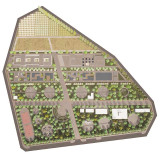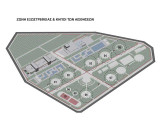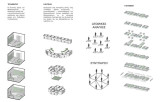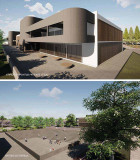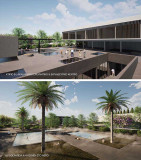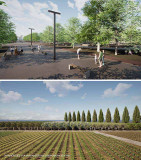Supervisor:
2024
In urban environments, citizens face daily stressful everyday life and emotional challenges that can affect their mental well-being. Therapy is not always related to the complete restoration of the individual's clinical and mental health, but it is a process of gradual improvement of the quality of their life.
Through the analysis and the understanding of mental health, architecture and urban environment, I try to determine the role of architectural design in the recovery, not only of people living with mental health issues, but of all citizens who interact in urban environments. I studied the urban landscape through a political, social and environmental perspective, and through creative design, I present it as a therapeutic environment.
The former military camp Ziaka, is located in Thessaloniki, and it was chosen as the field for this design study. The studied area is a large land area of 124 acres, with limited existing structures in it. Upgrading this underutilized area with a strong social significance through an architectural-urban-political planning, creates an important background for the overall upgrading of the area.
Through the effort to reconcile the diverse requirements of a study to achieve a comprehensive synthetic identity, the design path elaborates a series of strategic interventions on multiple scales, ranging from general spatial planning to detailed building design and the planning of their interior spaces and functions.
Private therapy spaces place the individual-unit at the center of therapy, focusing on their personal needs. Through their gradual personal healing process, individuals reflect, evolve and in a second phase, engage with the community, participate and interact.
Through the design of public urban space, agricultural areas, green spaces, hydrotherapy areas, sports and cultural facilities, the aim is to stimulate all the senses of the citizens. Not only the treated guests but also the visitors - residents of the surrounding degraded urban life. The park welcomes the visitors, guiding them through the stages of therapy and rehabilitation, and finally reintegrating them, slightly healthier, back into the city and their daily routine.
